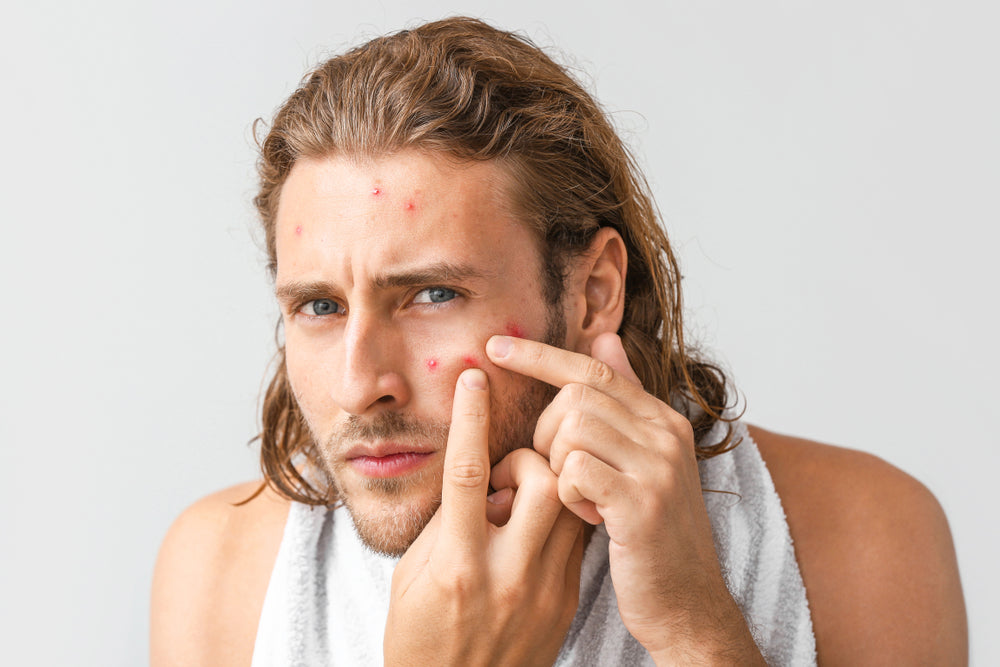At What Age Does Your Acne Go Away? How Long it Takes

Acne is the bane of many people’s existence, especially teens. It frequently ruins prom photos and makes people self-conscious about their image.
If you struggle with acne, you may wonder when all of the pimples will go away. So do zits eventually vanish, or are you stuck with them for life?
Does Acne Go Away With Age?
For most people, acne goes away with age and a proper skincare regimen. It’s important to start a new routine as early as possible.
This should entail a solid cleanser as well as an oil-free moisturizer that won’t clog your pores. In the event you’re prone to acne, you should incorporate an acne treatment medication into your regimen.
At What Age Does Acne Go Away?
The reason acne is so prominent in teenagers is that it’s the time of puberty. This results in hormonal fluctuations, which can increase the skin’s production of sebum. Sebum traps dirt and other debris in pores, resulting in inflammation and acne.
As such, acne should dissipate somewhat with age. Teenage acne normally sticks around for five to 10 years, with most people noticing a significant reduction by the time they’re in their early 20s.
However, this isn’t the case with everybody. Some people experience regular acne well into adulthood. Consult with your dermatologist if you’re concerned about your levels of acne.
Adult Acne Causes
As you enter adulthood, you may not see a zit on your face for months, or even years. Then one day, a dreaded pimple rears its whitehead. There are plenty of reasons why adults experience acne outside of genetics.
Food Allergies
Your diet plays a crucial role in your skin’s health. You want to ensure you’re eating plenty of anti-inflammatory agents to keep acne at bay, including ample Vitamin C.
Conversely, some foods can make pimples appear worse. This includes any foods you’re allergic to, which result in an inflammation in the body that can lead to redness and bumps.
Stress
Excessive stress can throw your hormones out of whack. It’s paramount to locate the source of the stress and take steps to ensure it doesn’t overtake your life.
Additionally, stress may make you neglect other aspects of your health. If you’re stressed out, you may forget your skincare routine or eat more junk food. Continuing to lead a healthy lifestyle, even during turbulent times, prevents acne from becoming one more stressor.
Pollution
Any pollution around you can land on your skin and clog your pores. Once it’s trapped by sebum, it can lead to acne. Additionally, pollution causes free radical damage, which makes your skin age faster.
The Difference Between Adult Acne and Teenage Acne
Teenage acne tends to result from hormonal fluctuations as a result of puberty. This is something no one can control, and as a result, acne is far more prevalent in that demographic.
Hormonal fluctuations still occur into adulthood, such as with pregnancy and menopause, but for the most part, adult acne comes far more often from outside factors. Diet, pollution, and medications tend to be more prominent causes for adult acne.
Do Teenage Acne Scars Go Away?
Teenage acne scars won’t go away entirely on their own. Fortunately, there are treatments to make the scars less noticeable.
Acne Scars Treatments
Resurfacing procedures, fillers, microneedling, and cryosurgery are just some of the options you have at your disposal. Consult with your dermatologist to see which one might be right for you.
The sooner you can begin treatment, the better off you will be. There are many over-the-counter chemical peels you can try at first, too, to see if they have any impact.
If you look for over-the-counter products to help with acne scars, make sure to look for ones that contain alpha-hydroxy acids, salicylic acid, retinoids, and azelaic acid.


Leave a Comment